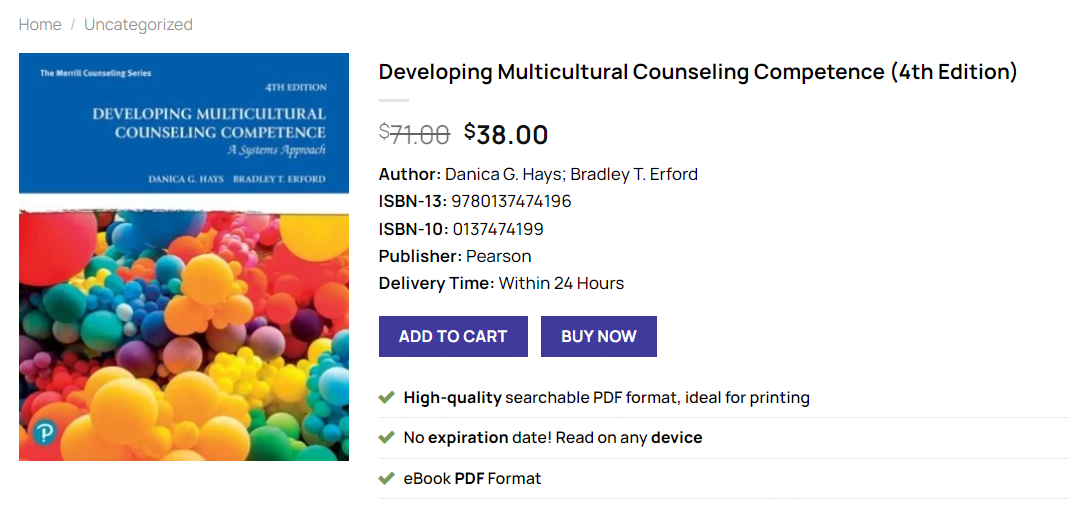Today we will explore the fourth edition of “Developing Multicultural Counseling Competence.” This comprehensive guide, written by Danica G. Hays and Bradley T. Erford, provides valuable insights and practical strategies for counselors looking to enhance their multicultural counseling skills. Whether you are a student, a practicing counselor, or someone interested in the field of counseling, this book offers a wealth of knowledge to help you navigate the complexities of working with diverse populations.
The fourth edition of “Developing Multicultural Counseling Competence” is a well-organized and highly informative resource that covers various aspects of multicultural counseling. The authors begin by discussing the importance of cultural competence in counseling and the impact it has on client outcomes. They then delve into the theoretical foundations of multicultural counseling, providing a solid framework for understanding the complex dynamics of culture, identity, and counseling.
Throughout the book, Hays and Erford emphasize the need for counselors to develop self-awareness and cultural humility. They provide numerous case examples, exercises, and reflective questions to help readers explore their own cultural biases and assumptions. By encouraging self-reflection, the authors empower counselors to better understand how their cultural backgrounds and experiences influence their counseling practice.
Key Themes and Concepts
One of the key themes explored in this book is the intersectionality of identities. Hays and Erford highlight the importance of considering the multiple dimensions of a person’s identity, such as race, ethnicity, gender, sexual orientation, and socioeconomic status. They emphasize that a person’s identity is complex and cannot be reduced to a single category. By understanding the intersectionality of identities, counselors can provide more effective and culturally sensitive interventions.
Another important concept discussed in the book is the impact of power and privilege in counseling relationships. The authors explore how power dynamics can influence the counseling process and perpetuate systemic inequalities. They provide practical strategies for counselors to address power imbalances and advocate for social justice within their practice.
Practical Application
“Developing Multicultural Counseling Competence” goes beyond theoretical discussions and offers practical guidance for counselors. The book includes chapters dedicated to specific populations, such as racial and ethnic minorities, LGBTQ+ individuals, and individuals with disabilities. Each chapter provides a comprehensive overview of the unique challenges faced by these populations and offers evidence-based strategies for effective counseling.
Furthermore, the book offers guidance on conducting culturally sensitive assessments, developing multicultural counseling interventions, and navigating ethical dilemmas in multicultural counseling. Hays and Erford provide step-by-step instructions and real-life examples to help counselors apply the concepts and strategies discussed in the book to their own practice.
Conclusion
“Developing Multicultural Counseling Competence” is an essential resource for counselors seeking to enhance their cultural competence and provide effective counseling to diverse populations. The authors’ emphasis on self-reflection, intersectionality, and social justice makes this book highly relevant in today’s multicultural society. Whether you are a student, a seasoned counselor, or simply interested in understanding the complexities of multicultural counseling, this book offers valuable insights and practical strategies that will enhance your counseling practice.

